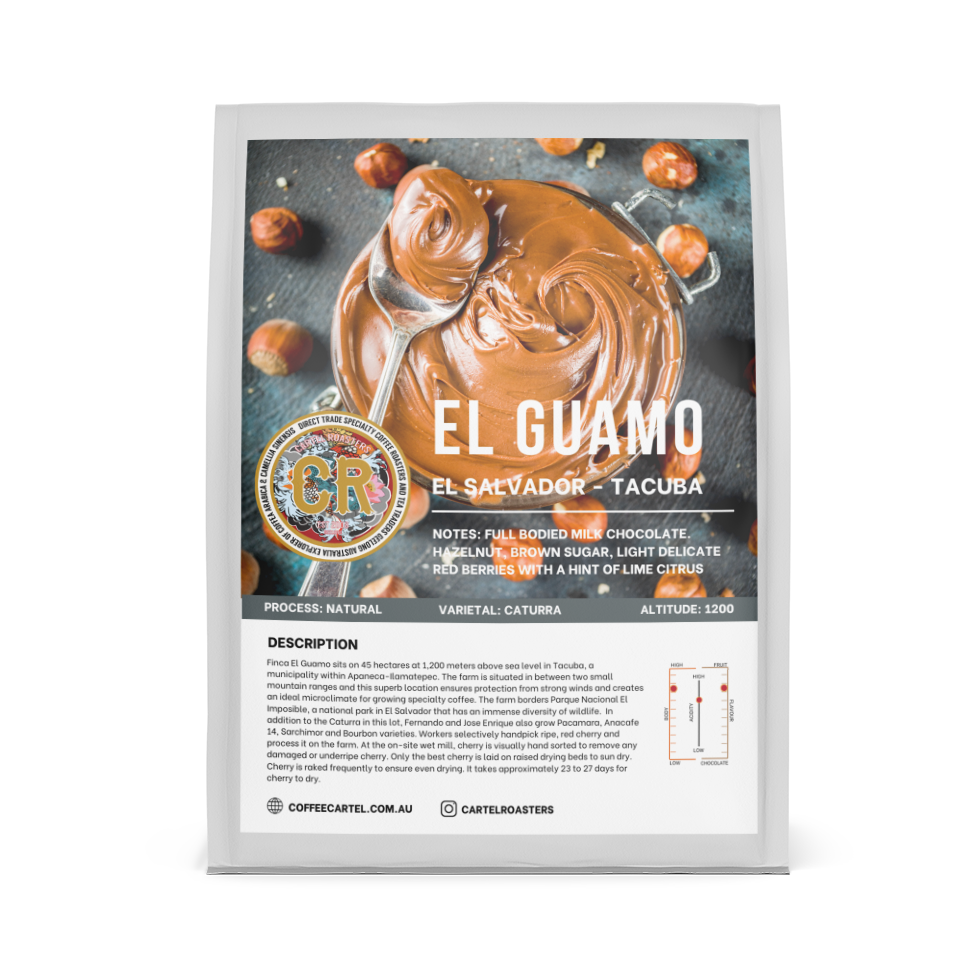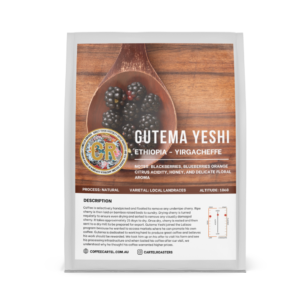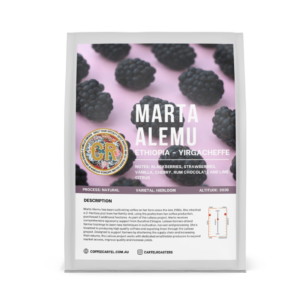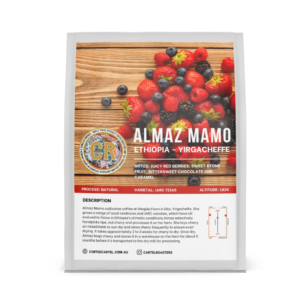About this coffee
- Altitude: 1200 MASL
- Farmer: FINCA EL GUAMO
- COUNTRY: EL SALVADOR
NOTES: FULL BODIED MILK CHOCOLATE. HAZELNUT, BROWN SUGAR, LIGHT DELICATE RED BERRIES WITH A HINT OF LIME CITRUS
Finca El Guamo sits on 45 hectares at 1,200 meters above sea level in Tacuba, a municipality within Apaneca-Ilamatepec. The farm is situated in between two small mountain ranges and this superb location ensures protection from strong winds and creates an ideal microclimate for growing specialty coffee. The farm borders Parque Nacional El Imposible, a national park in El Salvador that has an immense diversity of wildlife.
In addition to the Caturra in this lot, Fernando and Jose Enrique also grow Pacamara, Anacafe 14, Sarchimor and Bourbon varieties.
Workers selectively handpick ripe, red cherry and process it on the farm. At the on-site wet mill, cherry is visually hand sorted to remove any damaged or underripe cherry. Only the best cherry is laid on raised drying beds to sun dry. Cherry is raked frequently to ensure even drying. It takes approximately 23 to 27 days for cherry to dry.
Don’t be fooled by El Salvador’s small size. It was once the 4th largest coffee producer worldwide and continues to produce high quality lots. The country is known for its great cupping varieties, such as Bourbon and Pacamara. In fact, two beloved, frequently high-scoring varieties—Pacas and Pacamara— originated in El Salvador.
Unlike other countries, where specialty coffee production has required a great deal of additional investment and training, El Salvador already has a broad and skilled specialty coffee workforce. Farming traditions run deep, and many Salvadorian farmers are extremely passionate about coffee production and continuously strive to improve their crop. El Salvador has optimal conditions for coffee processing. The prolonged dry season typically occurs during the harvest season, making it easier to sun dry coffee.
Though coffee output in the country has been declining for over two decades – exacerbated by the CLR crisis – the approach to coffee production has changed from volume- to quality-driven. A new generation of coffee producers has sprouted around the country with a new vision and approach to production. Many of this generation are experimenting with processing and varietals.





